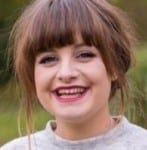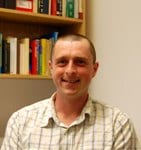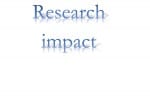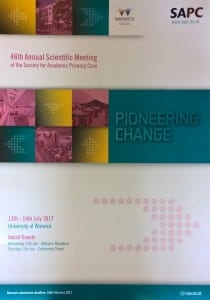 The mental health charity Mind states that 1 in 4 individuals experience a mental health problem within their lifetime. Some of these individuals may experience mental health stigma, which is often due to negative connotations associated with mental health [1].
The mental health charity Mind states that 1 in 4 individuals experience a mental health problem within their lifetime. Some of these individuals may experience mental health stigma, which is often due to negative connotations associated with mental health [1].
Previous research has highlighted the types of mental health stigma people experience, for example, believing individuals with a mental health disorder are dangerous, [2] and is suggested to be a result of a culture’s pre-determined beliefs. Research has also demonstrated that it is due to members of the public receiving inaccurate information from the media [3, 4]. Because of this, stigma is a big problem as it can prevent individuals from seeking help [5].
 New research published this week by lead author and PhD student Laura Simmons has suggested that using knowledge and information about mental illness can be used to reduce mental health stigma.
New research published this week by lead author and PhD student Laura Simmons has suggested that using knowledge and information about mental illness can be used to reduce mental health stigma.
Within her research, Laura conducted a pre and post-test and asked participants to record their level of knowledge and stigma before and after being presented with information about mental health from the charity Mind.
 Her article, reducing mental health stigma: the relationship between knowledge and attitude change has been published in the European Journal of Mental Health. It demonstrates that it is possible to change attitudes that are related to mental health stigma, which she suggests should be used when designing education programmes or mental health campaigns.
Her article, reducing mental health stigma: the relationship between knowledge and attitude change has been published in the European Journal of Mental Health. It demonstrates that it is possible to change attitudes that are related to mental health stigma, which she suggests should be used when designing education programmes or mental health campaigns.
Laura’s current work focuses on stress as a cause of sickness absence in the ambulance service. Research has outlined that mental health problems are prevalent among the ambulance service due to the nature of their role and reducing stigma is important for them to seek help.
Laura is a PhD student in CaHRU and the Lincoln Institute for Health.
1. Petty, R. E., D.T. Wegener & L.R. Fabrigar. (1997). Attitudes and attitude change, Annual Review of Psychology, 48, 609-647. DOI: 10.1146/annurev.psych.48.1.609
2. Crisp, A.H., M.G. Gelder, H.I. Meltzer & O.J Rowlands. (2000). Stigmatisation of people with mental illness. The British Journal of Psychiatry, 177, 4-7. DOI: 10.1192/bjp.177.1.43.
3. Lam, C.S., H.W.H. Tsang., P.W. Corrigan., T. Lee., B. Angell., K. Shi., S. Jin & J.E. Larson. (2010). Chinese lay theories and mental illness stigma: Implications for research and practices. Journal of Rehabilitation, 76, 35-40.
4. Ineland, L., L. Jacobsson., R.E. Salander & P. Sjolander. (2008). Attitudes towards mental disorders and psychiatric treatment changes over time in a Swedish population. Nordic Journal of Psychiatry, 62, 192-197. DOI: 10.1080/08039480801962855.
5. Wahl, O.F. (1999). Mental health consumer’s experience of stigma. Schizophrenia Bulletin, 25, 467-478.
By Laura Simmons
 I have been working on sleep and health for around 7 years now. When I first started there was very little interest. A clinician, on a national funding committee, said to me “why are you worried? Sleep is natural…” I think this attitude is finally changing.
I have been working on sleep and health for around 7 years now. When I first started there was very little interest. A clinician, on a national funding committee, said to me “why are you worried? Sleep is natural…” I think this attitude is finally changing. You may have seen an increased interest in the media in relation to sleep. There are news articles, nearly daily, about the new research and the ‘dangers’ of bad sleep. I suppose they need to sell papers. I was recently part of a BBC1 programme (‘The truth about…sleep’) with Michael Mosely. They approached us to conduct some sort of experiment. Working with my colleague (Dr Eleanor Scott) we recorded the blood glucose in 6 participants for a week. During this time, they were required to reduce their time asleep by 3 hours on 2 consecutive nights.
You may have seen an increased interest in the media in relation to sleep. There are news articles, nearly daily, about the new research and the ‘dangers’ of bad sleep. I suppose they need to sell papers. I was recently part of a BBC1 programme (‘The truth about…sleep’) with Michael Mosely. They approached us to conduct some sort of experiment. Working with my colleague (Dr Eleanor Scott) we recorded the blood glucose in 6 participants for a week. During this time, they were required to reduce their time asleep by 3 hours on 2 consecutive nights.















